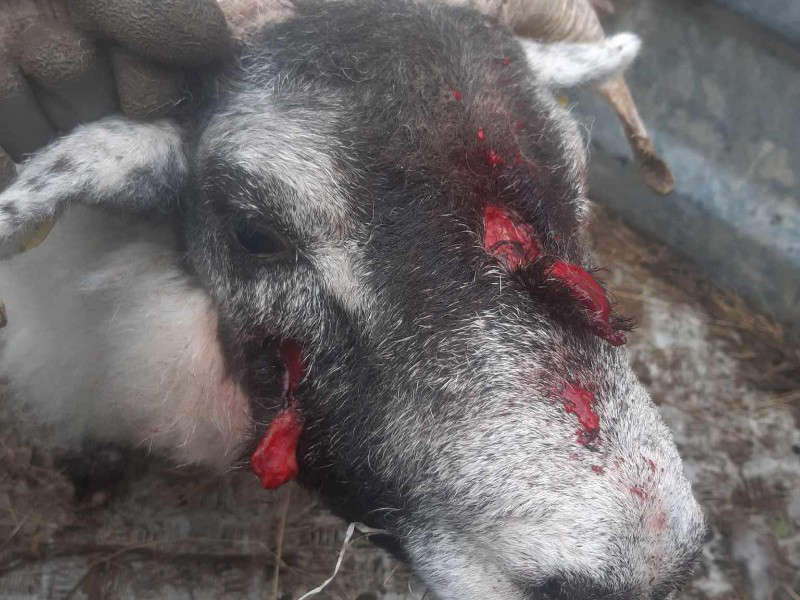
Concern grows as farmers call for urgent review of Isle of Man’s 'limited' dog legislation
Figures obtained via a Freedom of Information request show a steep rise in dog attacks on the Isle of Man, prompting concern from police, farmers, and politicians alike.
The data reveals that in 2024, there were 30 dog attacks reported - more than double the number recorded in 2021.
Notably, 15 of those cases did not specify whether the dog was on a lead, a figure significantly higher than in previous years.
The highest number of off-lead attacks occurred in 2023, with 14 incidents reported.
The Isle of Man Constabulary says it believes dog attacks are increasing - not only in frequency, but also in how often they are being reported.
Police think this may partly be due to greater awareness and a growing willingness within the agricultural sector to report incidents.
Police Sergeant Dave Bartley works with the port's dog unit:
"There has been a noticeable increase in attacks involving dogs across the Isle of Man. It’s down to a lack of control by the owners - that can come from complacency, a belief that their dog is under control, or simply not having it on a lead."
However, officers say their ability to act is constrained due to what they describe as 'limited' legislation.
The Dog Act 1990 is the main piece of legislation governing such incidents and has not been substantially updated in more than three decades.
"The law is limited in what we can do. However, we will deal with dog attacks proactively and robustly.
"Our farming community is starting to speak up about animals causing problems for their livestock, and that's something we’re committed to policing."
The Act currently allows a fine of up to £2,500 if a dog is found straying on agricultural land or has been worrying livestock - but it only applies if the dog is physically on that land.
Similarly, a dog can only be destroyed by court order under specific circumstances, such as causing injury to a person in a public place, or worrying livestock on agricultural land.
These legal limitations can present issues, particularly in more complex scenarios. For example, if livestock escapes a field and is then attacked by a dog in a residential garden, authorities may find it challenging to pursue legal action under the existing law.
The Manx National Farmers' Union has consistently raised awareness about dog attacks on livestock through social media, particularly in the lead-up to lambing season.

Credit: Manx National Farmers' Union
Images have been posted showing sheep with injuries allegedly sustained during dog attacks.
The Manx National Farmers' Union General Secretary is Sarah Comish:
"The law is extremely out of date. It also leaves a lot of grey areas for both the police, the livestock owners and the courts.
"We’ve seen that in action, and it was notable that they [the courts] did not have a lot to work with. They were very limited in what they could do. Establishing guilt is very tricky."
The MNFU says this delay is not due to a lack of resources, but rather a political choice.
However, the Department of Environment, Food and Agriculture denies this, saying the issue lies in the limited number of legislative drafters available.
Clare Barber is the minister:
"Nothing has been shelved. We’ve had to rationalise our legislative programme to prioritise items with time constraints. I’d love to say I have plenty of drafters to do all this work at once, but I simply haven’t.
"The Dogs Act 1990 is something we recognise as outdated, and it’s absolutely on my list of things that need to be rectified."
It is understood that discussions are ongoing between police, the MNFU, and the government regarding how best to review and improve the Dog Act 1990.
Until then, both farmers and authorities are urging dog owners to act responsibly, particularly in rural and agricultural settings, where the consequences of a dog attack can be devastating - not only for livestock, but also for the people whose livelihoods depend on them.


 Total cost of 20mph scheme expected to be £400,000
Total cost of 20mph scheme expected to be £400,000
 New political members join health department
New political members join health department
 More details on first Isle of Man Wetherspoons
More details on first Isle of Man Wetherspoons
 Anti-social behaviour causes 'damage beyond repair' to Castletown toilets
Anti-social behaviour causes 'damage beyond repair' to Castletown toilets
